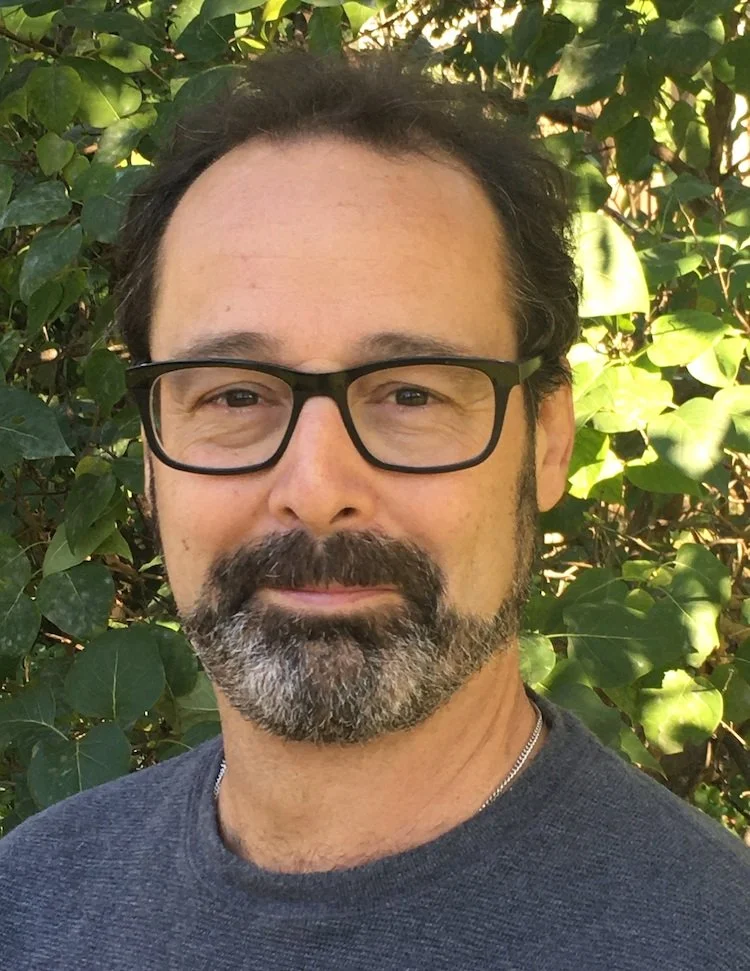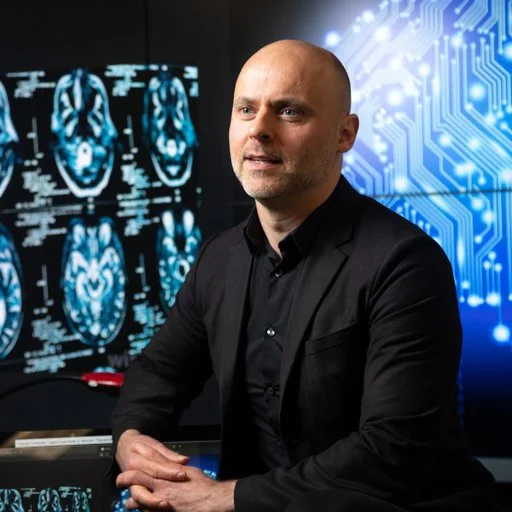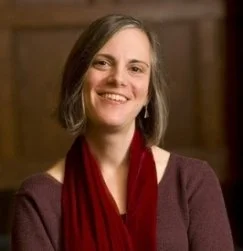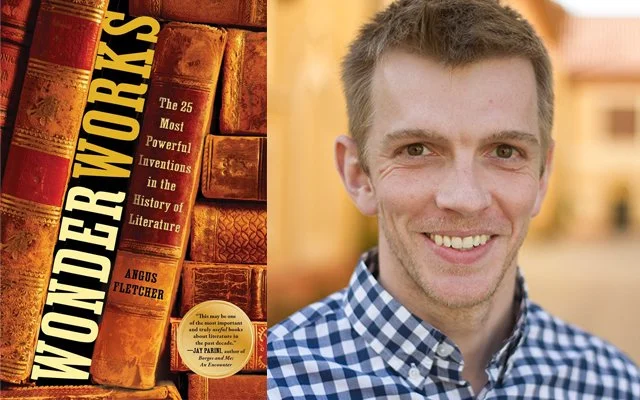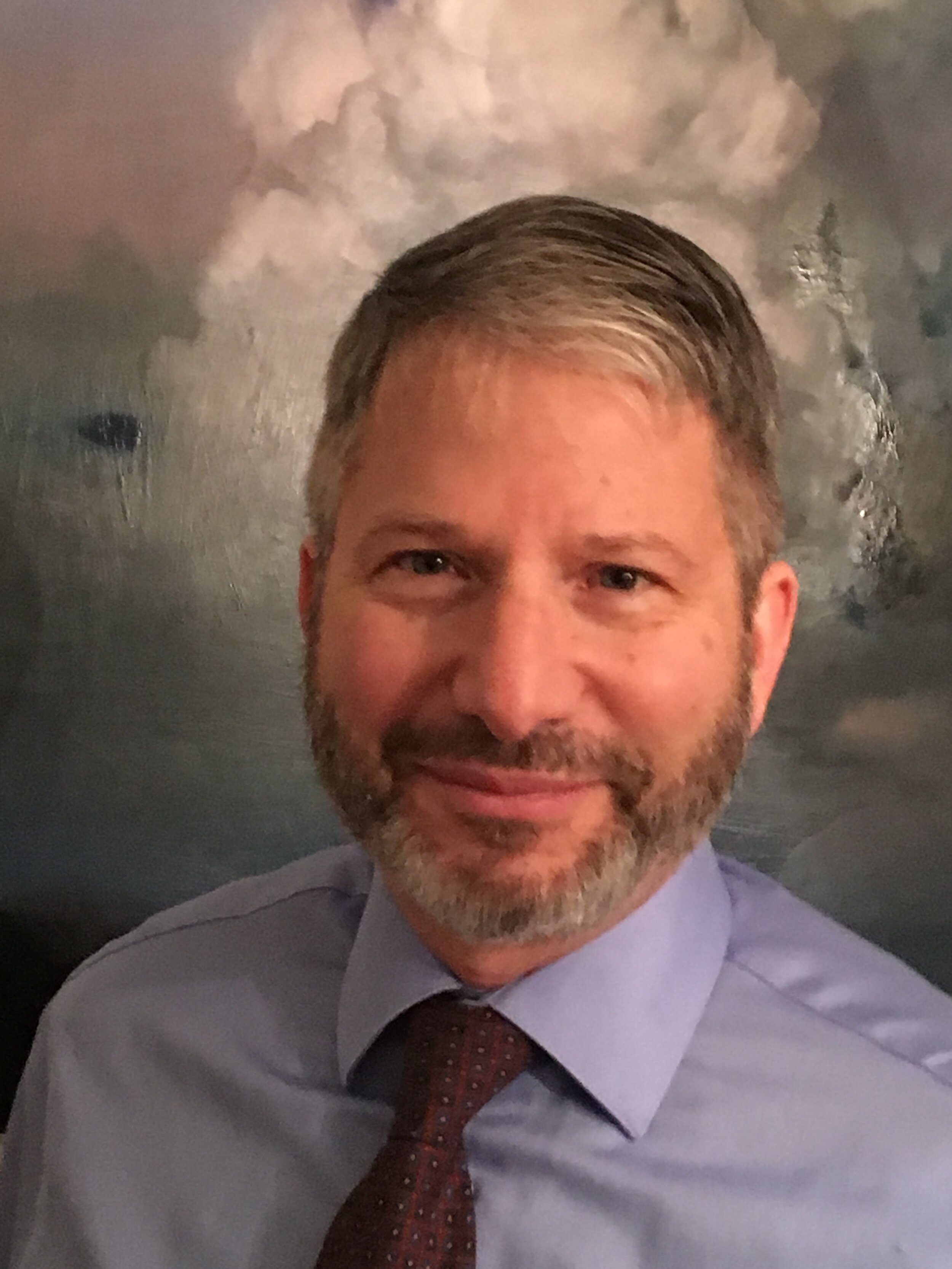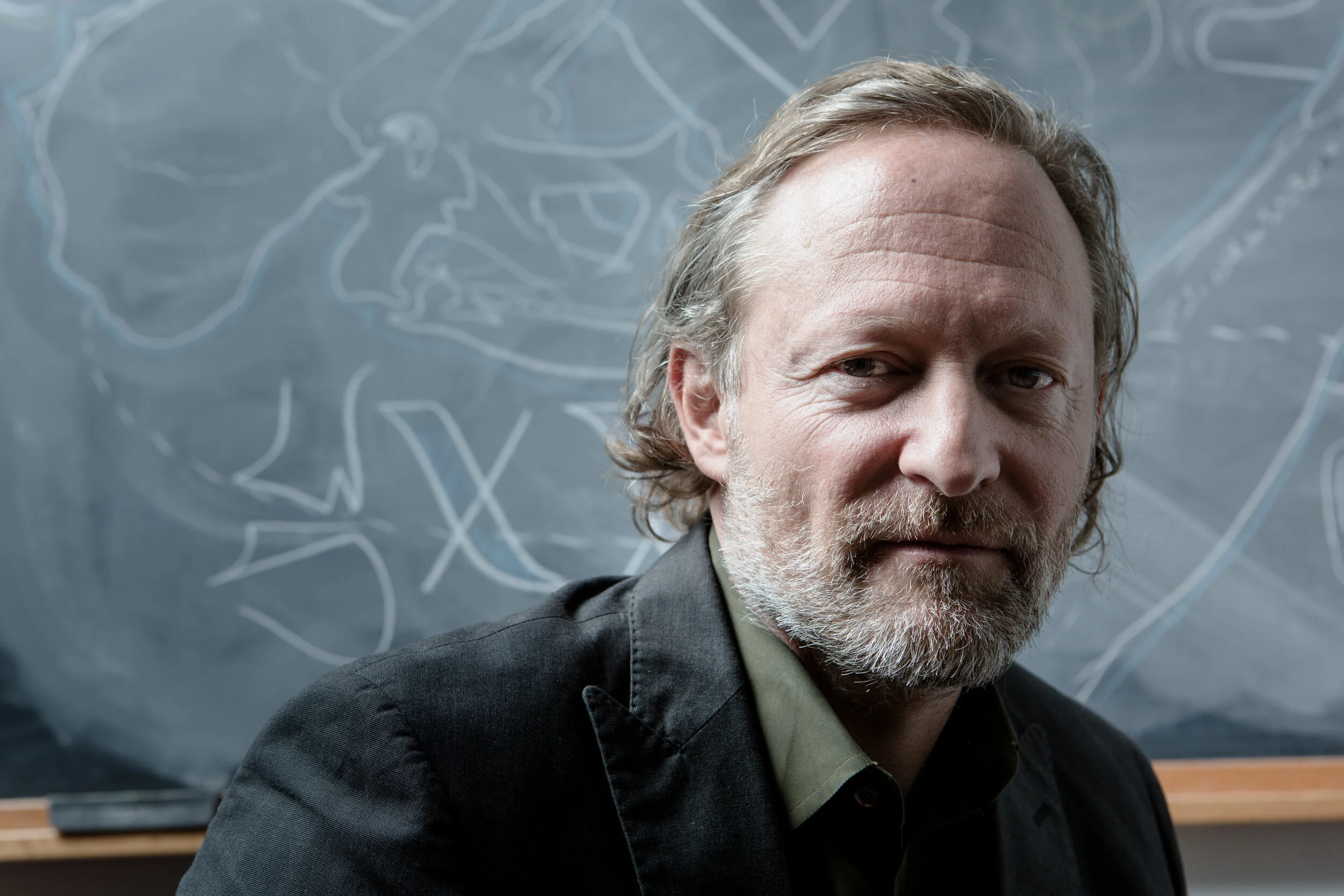What is Radical Futures?
Interview with Ollivier Dyens and Damian Arteca
Listen in to the introduction of the Radical Futures project, presented as an interview with project Co-Leads Damian Arteca and Prof. Ollivier Dyens. Ollivier details the history and founding of McGill University’s Building 21, and the motivation behind the Radical Futures initiative, inspired by a desire to re-invent the way in which we interact with the future. Through guided discussion with students, faculty, and visiting scholars, as well as multimedia productions, Radical Futures aims to re-imagine the future not as a static ground towards which we fall, but rather as a field of potential constrained only by our modes of thought and action.
Ed Finn: professor at ASU and founder of the Center
for Science and the Imagination
Dr. Finn explores how we can reassert our active agency and imagination in an age of passive technology. Find out how the Academy can be a site of radical futurist re-imagining, particularly through interdisciplinary thinking that combines approaches from the sciences, technologies, and humanities. Dr. Finn pushes for a privileging of curiosity, creativity, and permission to disrupt the ‘tyranny of the average.’ Dr. Finn asks us to imagine a culture akin to a ‘Centaur Match’ in chess games in which teams of humans collaborating with AIs compete to create, in his words, the most ‘beautiful’ version of the sport.
Ed Finn is the founding director of the Center for Science and the Imagination at Arizona State University where he is an associate professor in the School of Arts, Media and Engineering and the Department of English. He also serves as the academic director of Future Tense, a partnership between ASU, New America, and Slate Magazine, and a co-director of Emerge, an annual festival of art, ideas, and the future. Professor Finn’s research and teaching explore digital narratives, creative collaboration, and the intersection of the humanities, arts, and sciences. He is the author of What Algorithms Want: Imagination in the Age of Computing (MIT Press, spring 2017) and co-editor of Frankenstein: Annotated for Scientists, Engineers and Creators of All Kinds (MIT Press) and Hieroglyph: Stories and Visions for a Better Future (William Morrow, 2014). He completed his PhD in English and American Literature at Stanford University in 2011 and his bachelor’s degree at Princeton University in 2002. Before graduate school, Ed worked as a journalist at Time, Slate, and Popular Science.
Antonio Zadra: Dreams Researcher
Antonio Zadra is Full Professor in the Department of Psychology at Université de Montréal where he is director of the Dream Laboratory. Antonio Zadra is also a researcher at the Center for Advanced Research in Sleep Medicine and co-author of the recently published When Brains Dream.
For much of his adult life, Antonio Zadra has been interested in all kinds of questions about dreams, from why our memories of dreams are so fragile, to how dreams relate to waking life, to whether dreams have a function. He is also interested by specific kinds of dreams and has conducted numerous studies on lucid dreams, nightmares, and recurrent dreams.
Interview conducted by Ollivier Dyens, Anita Parmar, Viola Ruzzier and Ezelbahar Metin
Frédéric Gilbert: The Ethics of Implantable Brain-Computer Interface
Frédéric Gilbert’s research explores the ethics of novel implantable brain-computer interfaces operated by Artificial Intelligence (AI), and the effects of such interfaces on an person's sense of control, autonomy, agency, and self, most specifically, when these technologies are used to treat dementia, epilepsy, severe depression, Parkinson’s, etc.
Leah Price, Book Historian
Leah Price is an American literary critic who specializes in the British novel and in the history of the book. She is a Henry Rutgers Distinguished Professor in the Department of English at Rutgers University and founding director of the Rutgers Initiative for the Book. She has written essays on old and new media for The New York Times Book Review, London Review of Books, The Paris Review, and The Boston Globe.
Her most recent book, What We Talk About When We Talk About Books The History and Future of Reading, won the Phi Beta Kappa Christian Gauss Award in 2020
Angus Fletcher: the Brain and Narratives: the Limits of AI
Angus Fletcher has dual degrees in neuroscience (BS, University of Michigan) and literature (PhD, Yale). He is a professor of story science at Ohio State’s Project Narrative, the world’s leading academic think-tank for the study of stories. His research employs a mix of laboratory experiment, literary history, and rhetorical theory to explore the psychological effects—cognitive, behavioral, therapeutic—of different narrative technologies.
His most recent book, Wonderworks: The 25 Most Powerful Inventions in the History of Literature (Simon & Schuster, 2021), details the mental health and well-being benefits of over two dozen literary breakthroughs from ancient Sumer to the present day.
Sha Xin Wei, Founding Director of the Synthesis center at Arizona State University
Join us in conversation with Dr. Sha Xin Wei, Founding Director of the Synthesis center at Arizona State University, and founder of the Topological Media Lab at Concordia University. Dr. Sha’s work in Synthesis and his current project, Prototyping Social Forms, explores the intersection of technology, philosophy, and experimentation. Combining ideas from Heraclitus to Artificial Intelligence, Dr. Sha constructs experimental environments that, by curating novel forms of experience, encourage multidisciplinary thought. What are the implications of experiencing the visual field through touch? Controlling weather simulations through bodily movement?
Professor Sha Xin Wei is the director of the School of Arts, Media + Engineering in the Herberger Institute for Design and the Arts at Arizona State University. He is also the founder and the director of the Synthesis Center at Arizona State University.[3]
Alexander Weinstein: science-fiction writer
Alexander Weinstein is a celebrated speculative fiction writer (Children of the New World; Universal Love). Informed by his origins as a realist writer and a longtime preoccupation with the role of technology in society, Weinstein imagines how the most essential elements of our lives (love, friendship, meaning, and so much more) may become distorted, mediated, or intensified in futures that are all-too-imaginable. Tune in to hear a writer’s vision of a world not so far away, and what he thinks is most worth holding onto as we navigate ever-accelerating change.
Alexander Weinstein is the author of the short story collections Universal Love and Children of the New World, which was chosen as a New York Times "100 Notable Books of the Year" and a best book of the year by NPR, Google, and Electric Literature. His fiction and interviews have appeared in Rolling Stone, World Literature Today, Best American Science Fiction & Fantasy, and Best American Experimental Writing. He is a recipient of a Sustainable Arts Foundation Award, and has been awarded the Lamar York, Gail Crump, Hamlin Garland, and New Millennium Prizes. He is the Director of The Martha’s Vineyard Institute of Creative Writing and an Associate Professor of creative writing at Siena Heights University.
Betty edwards: art instructor
Betty Edwards is an art teacher, education researcher, and author. She graduated from UCLA with a PhD in Art, Education, and Psychology in 1976, and her dissertation was adapted into her bestselling book, Drawing on the Right Side of the Brain, which has gone through four editions and has over four million copies sold.
Betty’s work focuses on drawing as a means to train visual-spatial cognitive skills associated with the right brain, which are neglected at all levels of education in favour of sequential, standardized, and language-based “left brain” cognitive skills. She believes that drawing should be taught to children at a young age, as a twin to reading and writing.
Her most recent work, Drawing on the Dominant Eye (Penguin Random House, 2020), explores the connections between the dominant eye and the brain in art and perception.
Jonathan Ledgard
Jonathan Ledgard is Director of Rossums, a new studio that seeks to identify technology opportunities for poorer communities.
He was Director of the Future Africa Initiative at the Swiss Federal Institute of Technology (École Polytechnique Fédérale de Lausanne, EPFL) until 2016.
Since 2012, he has led a consortium of leading roboticists, architects, and logisticians that seeks to build the first Droneport in the world in Africa in 2016.
Jonathan Ledgard is a leading thinker on advanced technology, risk, and nature in emerging economies. He spent two decades as an award-winning frontline foreign correspondent for The Economist, reporting lead stories from over 50 countries and several wars – for the last decade as Africa correspondent.
He has advised to board and head of state level on the near future at the Steering Committee for Humanitarian Response, ICRC, Global Humanitarian Labs, WeRobotics, Robohub, African Development Bank, COP 21, European Commission, Governments of Ethiopia, Seychelles, Somalia, Uganda, Rwanda, Tanzania, Kenya, and companies such as Google, IBM, WEF, Lombard Odier and Diageo.
His second novel, Submergence, a New York Times book of the year, is presently being adapted for Hollywood by Wim Wenders.
Jonathan Ledgard Believes Imagination Could Save the World – The New Yorker
Refik Anadol
Refik Anadol (b. 1985, Istanbul, Turkey) is a media artist, director, and pioneer in the aesthetics of machine intelligence. He currently resides in Los Angeles, California, where he owns and operates Refik Anadol Studio and RAS LAB, the Studio’s research practice centered around discovering and developing trailblazing approaches to data narratives and artificial intelligence. Anadol is also a lecturer and researcher for UCLA's Department of Design Media Arts from which he obtained his Master of Fine Arts.
Anadol’s body of work addresses the challenges, and the possibilities, that ubiquitous computing has imposed on humanity, and what it means to be a human in the age of AI. He explores how the perception and experience of time and space are radically changing now that machines dominate our everyday lives. As a spatial thinker, Anadol is intrigued by the ways in which the digital age and machine intelligence allow for a new aesthetic technique to create enriched immersive environments that offer a dynamic perception of space.
By proposing the possibility of “post-digital architecture,” Anadol invites his audience to imagine alternative realities by re-defining the functionalities of both interior and exterior architectural elements. Anadol tackles this by moving beyond the integration of media into built forms, instead, translating the logic of a new media technology into spatial design. Residing at the crossroads of art, science, and technology, Anadol’s site-specific three-dimensional data sculptures, live audio/visual performances, and immersive installations take many virtual and physical forms. Entire buildings come to life, floors, walls, and ceilings disappear into infinity, breathtaking aesthetics take shape from large swaths of data, and what was once invisible to the human eye becomes visible, offering the audience a new perspective on, and narrative of, their worlds.
Refik Anadol and the Studio’s global projects such as Machine Hallucination, WDCH Dreams, Melting Memories, Infinity Room, and Archive Dreaming have received a number of awards and prizes including the Lorenzo il Magnifico Lifetime Achievement Award for New Media Art, Microsoft Research’s Best Vision Award, iF Gold Award, D&AD Pencil Award, German Design Award, UCLA Art+Architecture Moss Award, Columbia University’s Breakthrough in Storytelling Award, University of California Institute for Research in the Arts Award, SEGD Global Design Award, and Google’s Artists and Machine Intelligence Artist Residency Award.
2070: what have we done right?
A reverse engineering thought experiment on the future
paul yachnin, department of english, mcgill university
Paul Yachnin is Tomlinson Professor of Shakespeare Studies at McGill University. He was Director of the international project Early Modern Conversions (2013-2019). Before that, he directed the Making Publics project (2005 to 2010). His ideas about the social life of art were featured on the CBC Radio IDEAS series, “The Origins of the Modern Public.” In 2009-2010, he served as President of the Shakespeare Association of America. Among his publications are the books, Stage-Wrights and The Culture of Playgoing in Early Modern England (with Anthony Dawson), editions of Richard II and The Tempest, and edited books such as Making Publics in Early Modern Europe and Forms of Association. With Bronwen Wilson, he is co-editor of a new multi-year, multi-volume series from Edinburgh University Press — Conversions: Religions, Cultures, and Transformations in Early Modern Europe and its Worlds. He publishes non-academic essays about Shakespeare and modern life, including titles such as “Alzheimer’s Disease: What would Shakespeare Do?” and “Tragedy as a Way of Life.” For the past eight years, he has been working on higher education practice and policy. He was lead author of the White Paper on the Future of the PhD in the Humanities and has published on the PhD in Policy Options, University Affairs, and other journals. He led the project Transforming Graduate Studies for the Future of Canada, which brought together 26 universities to consider ways of making the PhD better. He led the TRaCE and TRaCE 2.0 Projects, which tracked the career pathways of 4,000 PhD graduates from 24 Canadian universities and told the stories of 400 of them. With Marie-Claude Felton and Chantelle Thauvette, he is leading TRaCE McGill (2018 to 2021), which is tracking the career pathways of PhD grads across all the faculties at McGill.
Francesca Panetta, Creative Director at the MIT Center for Advanced Virtuality.
An immersive artist and journalist, Francesca Panetta uses emerging technologies to innovate new forms of storytelling that have social impact. In her previous role at the Guardian, Francesca pioneered new forms of journalism, including interactive features, location-based augmented reality, and most recently virtual reality, where she led an in-house VR studio.
At the intersection of journalistic reporting, scholarly sources, and artistic expression, Francesca’s work ranges in subject matter — from an exploration of solitary confinement in prisons in the United States (“6x9”) to a child development-based story allowing viewers to see the world through a baby’s eyes (“First Impressions”).
Francesca has received numerous awards from all over the world, touring the White House, Tribeca, Cannes, Sundance, and more. She was a 2019 Nieman Fellow at Harvard University.
azeem azhar: Founder exponential view
Azeem Azhar is an entrepreneur, investor, and advisor who produces the highly-cited newsletter, Exponential View.
He has mixed interests in technology, science, and math as well as economics, philosophy, and history. The early part of his career took him to journalism, where he covered technology at The Guardian and The Economist. He has also had product, strategy, and innovation roles at the BBC and Thomson Reuters. Recently he was founder and CEO of PeerIndex, a venture-backed startup which applied a lot of machine learning to large-scale social graphs to make predictions about social web users. PeerIndex was acquired by Brandwatch in 2014.
He is currently senior advisor, artificial intelligence at Accenture.
He has been involved in a number of other startups and incubators including PowerSet (Microsoft), Evi (Amazon), NewEnergyFinance (Bloomberg), Dopplr (Nokia), Seedcamp, and others. He currently advises Onfido, Re:Infer, Seldon, Cronycle, and others.
Exponential View: https://www.exponentialview.co/
David Krakauer: President and William H. Miller Professor of Complex Systems at the Santa Fe Institute
In his research, David Krakauer explores the evolution of intelligence and stupidity on earth. This includes studying the evolution of cellular, linguistic, social, and cultural mechanisms and artifacts supporting memory and information processing.
David Krakauer was the founding Director of the Wisconsin Institute for Discovery, the Co-Director of the Center for Complexity and Collective Computation, and Professor of Mathematical Genetics all at the University of Wisconsin, Madison.
He was also a Fellow at the Genomics Frontiers Institute at the University of Pennsylvania, a Sage Fellow at the Sage Center for the Study of the Mind at the University of Santa Barbara, a long-term Fellow of the Institute for Advanced Study in Princeton, and visiting Professor of Evolution at Princeton University.
The Big Questions
His research centers around a series of fundamental questions:
1. How did intelligence evolve in the universe?
2. What is the relationship of intelligence to fundamental physical and biological laws, to include entropy production, the arrow of time, and natural selection?
3. How do collectives of adaptive agents generate novel ideas and come to predict and understand the worlds in which they live?
4. How do ideas evolve and how do they to encode natural and cultural life?
5. What is the relationship of organic to inorganic, cultural, and institutional mechanisms of computation and representation?
David Jhave Johnston is a digital-poet writing in emergent domains: AI, 3D, VR, and code. Author-programmer of the multimedia human + AI writing art-project ReRites (Anteism Books, 2019), the theoretical-history Aesthetic Animism: Digital Poetry's Ontological Implications (MIT Press, 2016), and many online interactive literary works at www.glia.ca. Jhave currently is an independent writer, affiliate faculty in the Computational Arts Dept at Concordia University, advisor at McGill’s Building21, and an interdisciplinary creative consultant.
Amit Ben-Eliyahu: Futures Perspectives on Biological Sex
This presentation attempts to set stage for an important social discussion on biological sex: what is the appropriate attitude towards biological sex? When is biological sex relevant (and thus ought to be considered), and when is it not relevant (and ought not be considered)? What role should biological sex play in our daily interactions and in organizing our society?
In addressing these large questions, the presentation begins by trying to clarify our understanding of biological sex, attempting to determine what sexual categories exist, and proposing a developmental account of biological sex. It goes on to examine some scientific findings regarding physiological and psychological differences between males and females, and attempts to assess the magnitude and practical significance of these differences.
Following the presentation, we launch into a discussion of the proper place of biological sex within society. Amongst the topics discussed were: biological sex in automobile design, pharmaceutical research, and psychological diagnosis; categorical perception of biological sex; biological sex in primate societies; and the functional significance of sexual categories within different social systems.



